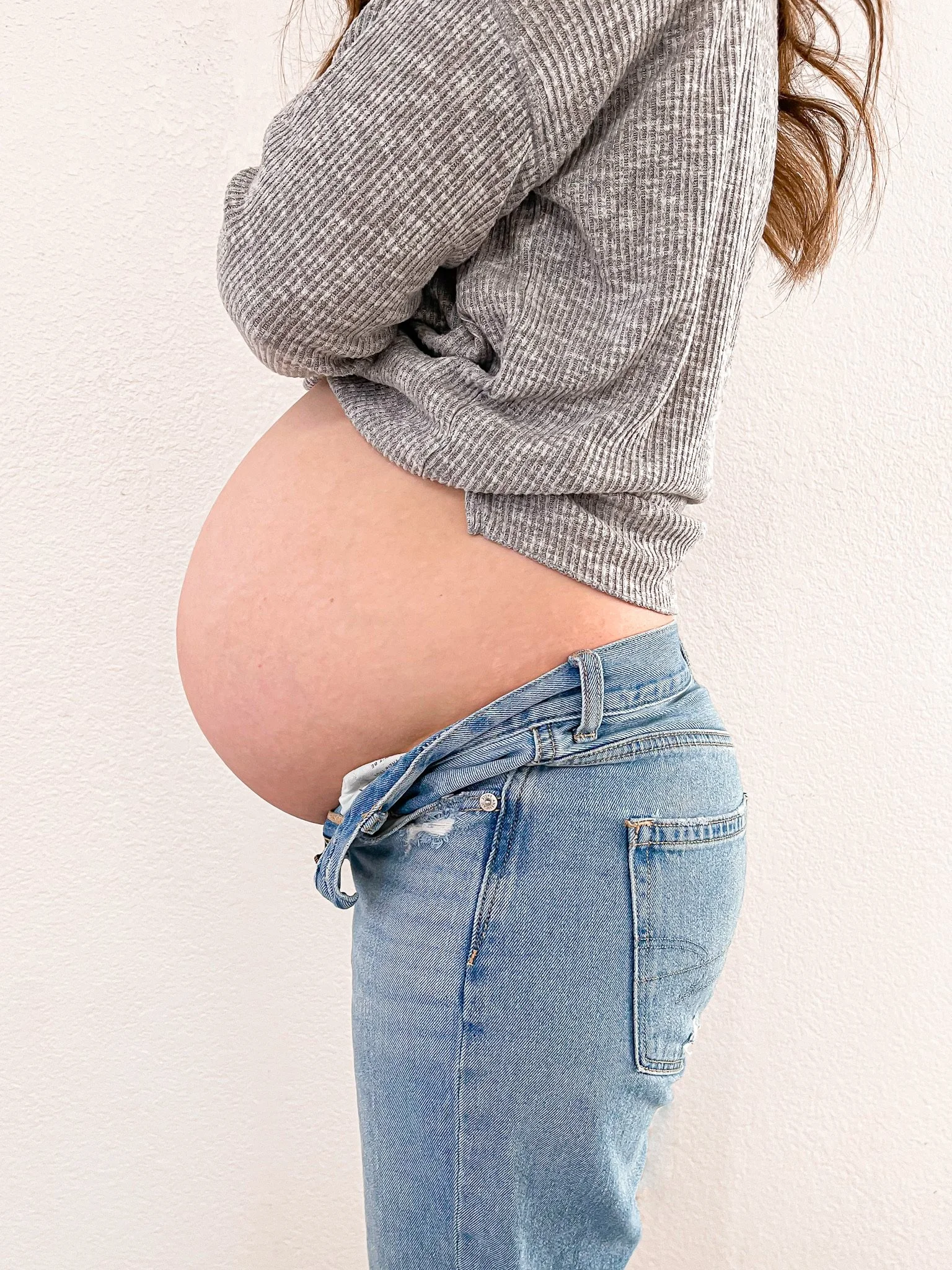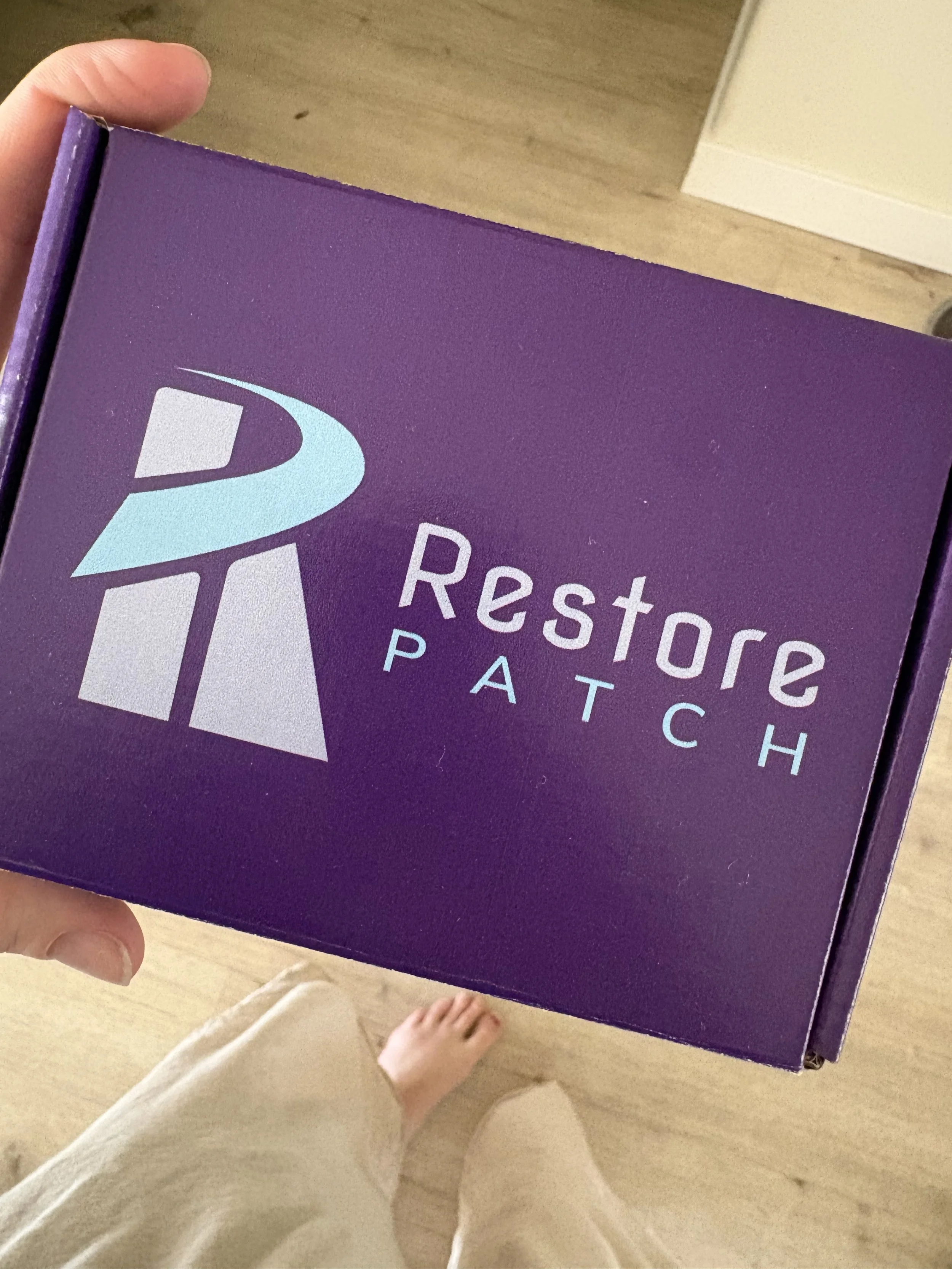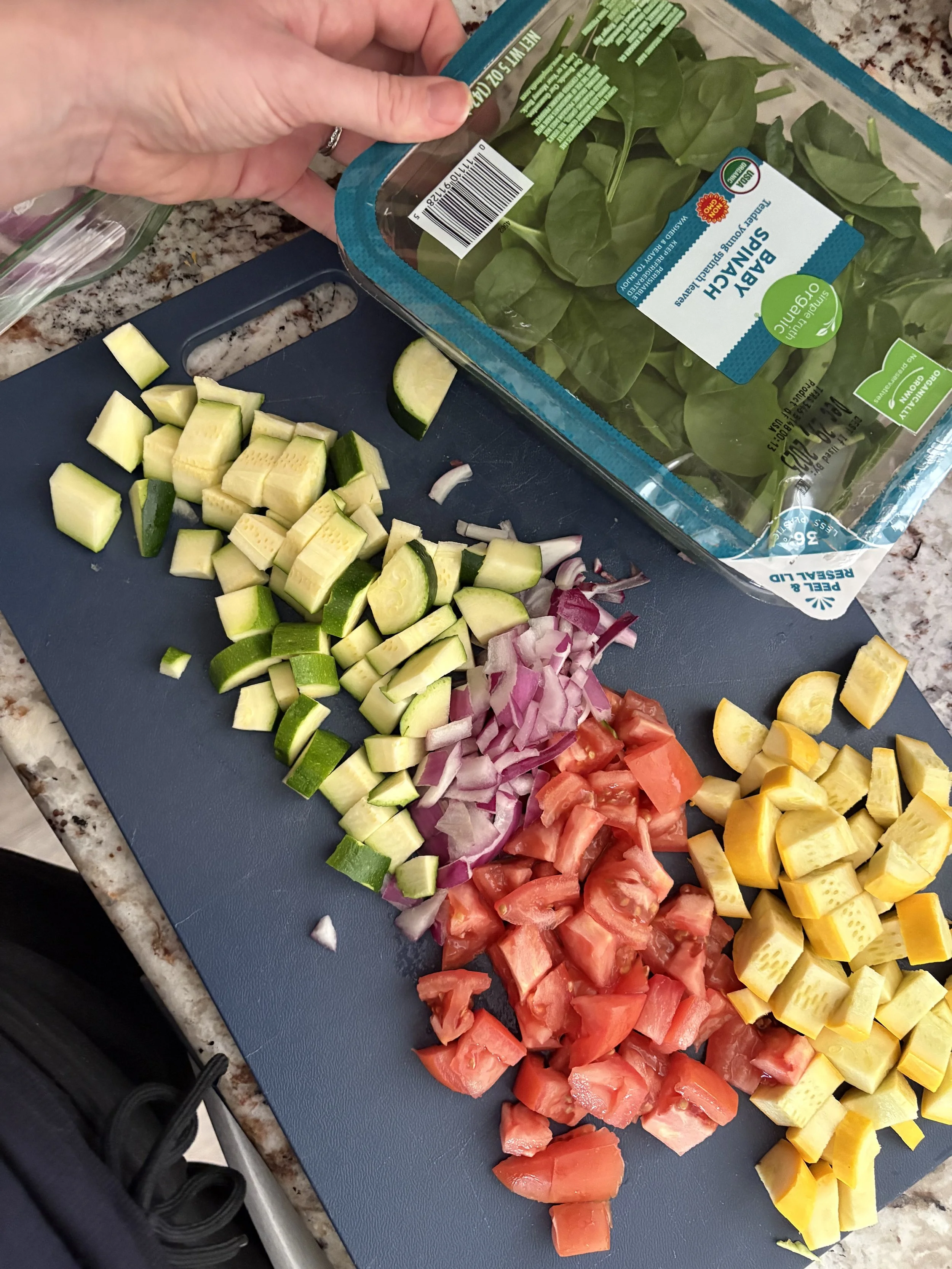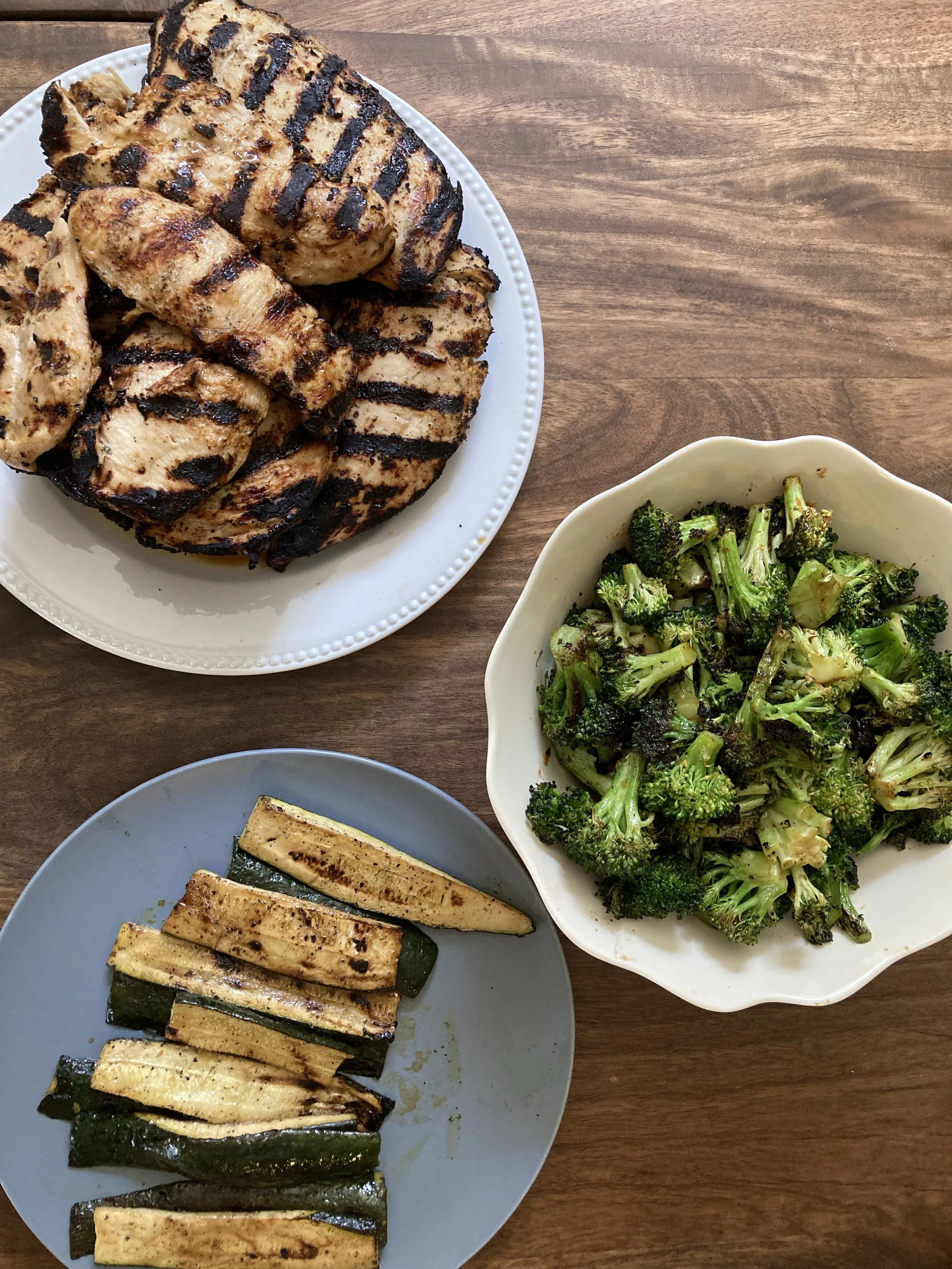8 Things I Would Do If I Wanted to Get Pregnant in 2025 (Other Than My Husband 🤪)
Are you hoping to get pregnant this year?
Here are 8 things to implement to optimize your holistic health in preparation for pregnancy!
Over the last few years, there has been a push in preconception wellness, and I am HERE for it. It is something I wish I were more aware of before having my first child, and definitely something I prioritized for my second. While my biological baby-havin days are done (you can read all about some of my genetic test results when having my second and why we made this choice for our family in this blog post), I frequently work with my coaching clients on this.
But why is preconception wellness even important? What do I need to do to optimize my fertility and the health of my future pregnancy? And what about the man’s role?
This post will answer all of those questions and give you some framework for what to consider before getting pregnant.
What is Preconception Wellness?
Preconception wellness refers to the physical, mental, and emotional health of a woman before she becomes pregnant. It’s the intentional effort to optimize your body and lifestyle before conception happens. This includes getting the right nutrients, balancing hormones, managing stress, addressing any underlying health issues, and creating a supportive environment for a future pregnancy.
Rather than waiting until you’re pregnant to make changes, preconception wellness helps you lay the foundation ahead of time—so your body is truly ready when the time comes.
Why is Preparing for Pregnancy Important?
Because so much of a baby’s development happens in the first few weeks of pregnancy—often before you even know you’re expecting—your health leading up to conception has a major impact. Nutrient stores, hormonal balance, egg quality, and even gut health all play a role in everything from fertility to early fetal development. Prioritizing wellness before pregnancy can:
Increase your chances of conceiving naturally
Reduce the risk of complications like gestational diabetes or preeclampsia
Support healthy fetal development from day one
Improve your postpartum recovery and energy
In short, taking care of yourself now is one of the best things you can do for your future baby—and for yourself.
7 Things I Would Do Before Getting Pregnant
Not only is this a list of things I would do before getting pregnant, but these are things I actually DID prior to my second pregnancy.
Get lab work done
Start by booking a preconception visit with your healthcare provider. Ask for a full panel of labs, including vitamin D, iron, thyroid function, blood sugar (HbA1c), and nutrient levels like B12 and folate. Identifying and addressing any imbalances now can support a smoother conception and pregnancy journey later.
Prioritize Nourishment
Pregnancy puts extra demands on your body, so now is the time to nourish it deeply. Think of food as one of your most powerful tools to support fertility. Focus on meals that are blood sugar-balancing, rich in healthy fats, and full of colorful produce. Eating well before pregnancy gives your body the nutrients it needs to build healthy eggs and, soon, a growing baby.
Here are some big nutritents to focus on the help to optimize egg health and fertility:
Folate- Folate (the natural form of folic acid) is essential for neural tube development in early pregnancy—often before you even know you’re pregnant. Start supplementing with methylated folate (especially if you have the MTHFR gene variant) and include folate-rich foods like leafy greens, avocados, lentils, and asparagus.
Protein- Protein is the building block of hormones and plays a huge role in stabilizing blood sugar and supporting ovulation. Aim for at least 80-100 grams of protein per day from a variety of sources: pasture-raised meats, eggs, fish, legumes, nuts, and seeds.
Varied diet of whole foods- The goal isn’t perfection—it’s variety and quality. A diverse, nutrient-dense diet gives your body the vitamins, minerals, and antioxidants it needs to prepare for conception. Choose organic when possible, eat the rainbow, and reduce ultra-processed foods. Gut health also matters, so consider incorporating probiotic-rich foods like yogurt, kefir, sauerkraut, and kimchi.
Supplement to Optimize Egg Health
Egg quality is largely influenced by mitochondrial health, which means certain supplements can be incredibly helpful when taken at least 3-4 months before trying to conceive. One of my favorite supplement companies that focuses on the perinatal stages is Needed. They have a specific product to support egg quality, and also created my favorite brand for prenatals.
Egg Quality Support is a supplement with targeted and expert-formulated antioxidants for egg quality and related fertility outcomes. Our formula also supports long-term mitochondrial health.
Fertility experts recommend taking Egg Quality Support 3-6 months before trying, given that a key stage of oocyte maturation (folliculogenesis) occurs 3-4 months before ovulation. But – it's never too early or too late to start supporting your egg cell health.
**They also have a comparable supplement for men’s sperm quality 👏 (I talk more about the importance of this in tip #8!)
Stop all recreational drugs, smoking, and limit alcohol
These may seem obvious, but they’re worth repeating: substances like nicotine, THC, and excessive alcohol can negatively impact fertility and fetal development. Cut them out well before conception, and aim to minimize alcohol to the occasional drink—if at all.
Budget for Baby
Babies bring so much joy—but also new expenses. Start setting aside savings for maternity care, baby gear, and parental leave. Review your monthly budget, explore ways to cut back on non-essential spending, and consider opening a dedicated savings account for baby-related expenses.
Check your health benefits
Now’s the time to look into what your insurance covers. Find out:
Do you need a referral to see an OB or midwife?
Is fertility testing covered?
What are your prenatal and birth options?
Are breast pumps or postpartum support included?
Understanding your benefits now can reduce stress later.
Begin (or maintain) a workout routine
Movement supports hormone health, improves blood flow to reproductive organs, and can help you feel more grounded during the TTC (trying to conceive) process. You don’t have to do intense workouts—think strength training, walking, Pilates, or yoga. The key is consistency and enjoyment.
Remember: Men’s Health is Equally Important
This is often a forgotten part of fertility, when it is half of the equation. Get your partner in on preconception wellness. All of the above pointers (including supplementation!) can help to optimize male fertility and the health of future babies!
Egg and Sperm Supplement Duo- my favorite product for optimizing sperm and egg health prior to conception!
✅ Preconception Wellness Checklist
Your step-by-step guide to preparing your body and mind for pregnancy. I have added lots of resources, blog post links, and faves to this virtual copy!
🩺 Health & Medical Care
◻ Schedule a preconception checkup with your healthcare provider
◻ Request comprehensive lab work from your PCP or OBGYN
◻ Speaking of OBs— start researching birth care providers in your area
◻ Review any medications or supplements for pregnancy safety (skincare products too!)
◻ Check your health insurance benefits related to fertility and maternity care
🥗 Nourishment & Supplements
◻ Begin a high-quality prenatal with methylated folate- Personally, I love the brand Needed. They have both a prenatal powder and capsule form for whichever fits your preference better!
◻ Focus on a whole food-based diet rich in color and variety
◻ Eat 80–100g of protein daily (eggs, meats, legumes, nuts, seeds)
Here are some of my most popular blog posts for supporting protein intake:
◻ Incorporate healthy fats (avocados, olive oil, fatty fish, nuts)
◻ Include probiotic-rich and fiber-rich foods to support gut health
◻ Supplement as needed!*
◻ Stay hydrated with clean, filtered water
*Consult your provider before starting new supplements.
🚫 Eliminate Harmful Exposures
◻ Stop smoking and all recreational drug use
◻ Minimize or eliminate alcohol
◻ Reduce exposure to endocrine-disrupting chemicals (swap plastics, clean products, etc.)
💪 Movement & Stress Management
◻ Start (or maintain) a consistent workout routine
◻ Choose movement you enjoy: walking, strength training, yoga, etc.
◻ Practice regular stress relief (journaling, deep breathing, hobbies)
◻ Prioritize 7–9 hours of quality sleep per night
💵 Planning & Mindset
◻ Create or revisit your budget with future baby expenses in mind
◻ Open a baby savings or health fund account
◻ Set healthy boundaries around work, rest, and screen time
◻ Cultivate a supportive environment (partner, friends, community)
✨ Bonus Tip:
Start a preconception journal to track your cycles, symptoms, labs, and goals—it’s empowering and insightful!
Related Reads:
My Favorite Books on Natural Childbirth, Fertility, and Pregnancy
How I Prepared for an Intervention-Free Birth (as a first time mom)















What is self-care actually?? This post explores what actually supports our wellness.. and all ideas shared take 5 minutes or less 👏